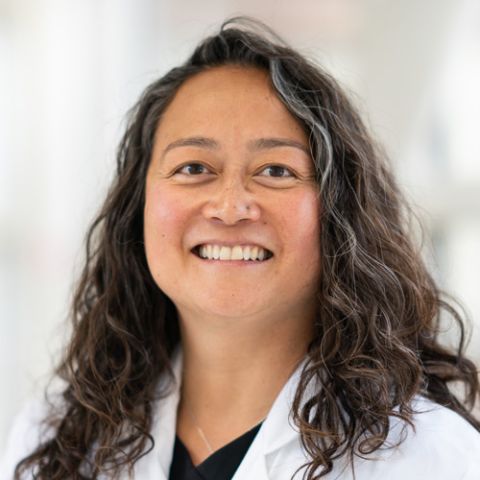When a recent article published by the National Cancer Institute reported that at least 50% of older adults had received at least one unnecessary cancer screening, Tessa Faye Flores, MD, Roswell Park’s Medical Director of Cancer Screening and Survivorship, was not surprised.
Over-screening is a sensitive topic, explains Dr. Flores. “At Roswell Park, we absolutely believe that appropriate routine cancer screening — such as mammograms, colonoscopies, PSA tests and Pap tests — are vital in detecting certain types of slow-growing cancers, especially in their earlier stages, when they are most treatable.
“The key word in that statement, however, is ‘appropriate.’ In younger adults, the benefits of these tests usually outweigh the risks. However, the risks associated with these tests increase as people age, particularly for invasive screenings, such as colonoscopies.”
The decision on when to stop certain cancer screenings should be based on a discussion with your physician and should consider screening guidelines as well as your personal medical factors: your risk of cancer; other underlying medical conditions, such as emphysema or heart disease; and the results of your previous screenings.
“In one case, I asked an 87-year-old patient if she would like to continue to be screened for breast cancer. She looked at me and said, ‘I didn’t realize I had a choice,’” Dr. Flores recalls.
What happened next was an open, honest discussion between the patient and Dr. Flores about the patient’s goals and realities. “She’d been through cancer treatment before, and she said that at age 87, with her husband gone and the other health issues she was facing, if a screening found cancer, given the toll that the treatment took on her physically and mentally, she honestly didn’t think she would opt to do it again.
“One of the things we do in both our Cancer Screening and Survivorship centers is to provide a care plan that includes recommendations for cancer screenings such as mammograms and colonoscopies,” says Dr. Flores. “Older adults and cancer survivors are going to have different risk factors for cancer as well as different screening needs.”
Dr. Flores is also careful to differentiate between routine screening tests and diagnostic tests. “When we talk about over-screening, we are talking about routine, preventive screenings. But if you have symptoms, such as a lump or unusual bleeding, regardless of your age, go to your doctor for an exam and diagnostic tests. And if you’ve had abnormal screening tests in the past, different guidelines may apply and continued screening may be appropriate, even for older patients.”
Do you need a cancer screening?
At Roswell Park, you can speak to a team of treatment specialists to determine your next steps.
Learn MoreTests older adults may no longer need
The most common tests that older adults undergo unnecessarily are colonoscopy (for colorectal cancer), mammograms (for breast cancer), Pap tests (for cervical cancer) and PSA screenings (for prostate cancer).
“At Roswell Park, we follow National Comprehensive Cancer Network (NCCN) screening guidelines," says Dr. Flores. "These guidelines recommend not only the age at which a person should start getting routinely screened for certain cancers, but also the age when those screenings may no longer prove useful because possible risks and harm from the test and its outcome may outweigh the benefits of the test.”
For instance, Dr. Flores notes that the risk of a bowel perforation during a colonoscopy is higher in older individuals. In other instances, where cancer experts may not be readily available, screenings may lead to unnecessary or overly aggressive treatments in a patient with other health conditions, which could cause more harm than the cancer itself. A good example is prostate cancer. All men need to discuss with their physicians the risks versus the benefits of treating their prostate cancer, and this discussion is even more important when patients are older.
So why do so many older people continue to have these tests, and why do some primary care doctors continue to recommend them to patients?
“A lot of reasons,” says Dr. Flores. “Habit. Fear. Patients might not know there is an option to decline some screenings. There is confusion over screening guidelines, especially for older adults. It may be difficult for a doctor to tell a longtime patient that they’ve reached the point where they are not likely to live long enough to benefit from treating whatever the tests may find. These are sometimes very hard conversations to have, but hopefully there is enough trust and rapport between the doctor, the patient and their caregivers to have an honest discussion of risks versus benefits, long-term goals and other health considerations.”



